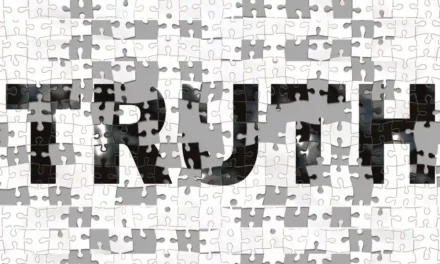
Don’t be an unsophisticated thinker
What is an unsophisticated thinker? An unsophisticated thinker is someone who does not think deeply about things. They tend to accept information at face value and are not good at identifying bias or fallacies. They may also be more likely to make snap judgments and decisions without considering all the options.
This is bad, because being an unsophisticated thinker can lead to a number of problems. For example, you may be more likely to:
- Make bad decisions that have negative consequences for yourself or others.
- Fall for scams or other forms of deception.
- Be easily manipulated by others.
- Have difficulty solving problems.
- Be less successful in your personal and professional life.
An unsophisticated thinker is someone who does not think deeply about things.
Typically, unsophisticated thinkers approach situations in one or more of the following ways:
- Relying on gut feelings or intuition: An unsophisticated thinker may make a decision based on how they feel about something, rather than on any evidence. For example, they might decide to invest in a particular stock because they “have a good feeling” about it, even if there is no data to support their hunch.
- Accepting information that confirms their existing beliefs: An unsophisticated thinker may be more likely to accept information that confirms their existing beliefs, even if it is not credible. For example, they might believe that a particular political candidate is corrupt, and then only pay attention to news stories that support that belief.
- Dismissing information that challenges their beliefs: An unsophisticated thinker may be more likely to dismiss information that challenges their existing beliefs, even if it is credible. For example, they might believe that climate change is not real, and then only pay attention to news stories that support that belief.
- Making snap judgments without considering all the options: An unsophisticated thinker may be more likely to make a decision quickly, without considering all the options. For example, they might decide to buy a new car without comparing prices or researching different models.
It is important to note that not all unsophisticated thinkers will exhibit all of these behaviors. However, if you find yourself doing any of these things, it is a good sign that you may need to work on your critical thinking skills.
How Does a Good Critical Thinker Approach a Situation?
In contrast, a good critical thinker may approach a situation in the following ways:
- Gathering as much information as possible: A good critical thinker will gather as much information as possible about a situation, from a variety of sources. For example, if they are considering buying a new car, they might read reviews, compare prices, and test drive different models.
- Evaluating the information carefully: A good critical thinker will evaluate the information they gather carefully, looking for bias or fallacies. For example, if they are reading a review of a new car, they might consider the author’s qualifications, the tone of the review, and the evidence that is presented.
- Considering all sides of the issue: A good critical thinker will consider all sides of an issue before forming an opinion. For example, if they are considering voting for a particular political candidate, they might read the candidate’s platform, listen to the candidate’s speeches, and read articles about the candidate.
- Being open to changing their opinion: A good critical thinker is open to changing their opinion if they are presented with new information. For example, if they are reading a review of a new car and they find that the author has made some false claims, they might change their opinion about the car.
It is important to note that not all good critical thinkers will follow these steps in exactly the same way. However, these are all important steps that can help you to become a more effective critical thinker.

DON’T LET PEOPLE INFLUENCE YOU WITHOUT YOU EVEN REALIZING!
Enter your information to get our FREE practice exercises so you can train yourself to recognize subtle persuasion techniques.
A good critical thinker is open to changing their opinion if they are presented with new information.
Moving from Being an Unsophisticated Thinker to a Good Critical Thinker
If you want to move from being an unsophisticated thinker to a good critical thinker, there are a few things you can do:
1
Be aware of your own biases
Everyone has biases, but it’s important to be aware of them so that you can avoid letting them cloud your judgment.
For example, if you are a fan of a particular sports team, you may be more likely to believe that your team is better than the other team, even if there is no evidence to support that belief, or even if the other team is known to be the better team. To overcome this bias, you should try to be objective and consider all of the factors that could affect the outcome of the game.
To overcome this problem, it’s important to be aware of your own biases and to try to be objective when evaluating information. You can do this by considering different perspectives and by being open to new information, even if it challenges your beliefs.
2
Be open to new information
Don’t just accept information that confirms your existing beliefs. Be willing to consider all sides of an issue before forming an opinion.
Unsophisticated thinkers may be more likely to accept information that confirms their existing beliefs. This is called confirmation bias. It’s a natural tendency to seek out information that confirms what we already believe and to ignore or dismiss information that contradicts our beliefs.
To overcome this problem, it’s important to be open to new information, even if it challenges your beliefs. You should also be aware of confirmation bias and try to avoid it.
For example, if you believe that climate change is not real, you may be more likely to read articles or watch videos that support that belief. You may also be more likely to dismiss articles or videos that present evidence that climate change is real. To overcome this bias, you should be open to new information and try to evaluate all of the evidence, even if it contradicts your beliefs.
3
Be willing to accept new information
If you are presented with new information that contradicts your existing beliefs, be willing to change your mind.
Unsophisticated thinkers may be more likely to dismiss information that challenges their existing beliefs. This is called disconfirmation bias. It’s the opposite of confirmation bias. It’s the tendency to ignore or dismiss information that contradicts our beliefs.
To overcome this problem, it’s important to be open to new information, even if it challenges your beliefs. You should also be aware of disconfirmation bias and try to avoid it.
For example, if you believe that climate change is real, you may be more likely to dismiss articles or videos that present evidence that climate change is not real. To overcome this bias, you should be open to new information and try to evaluate all of the evidence, even if it contradicts your beliefs.
4
Don’t jump to conclusions
Unsophisticated thinkers may be more likely to make snap judgments without considering all the options. This is called impulsive decision-making. It’s the tendency to make decisions quickly, without considering all of the options.
To overcome this problem, it’s important to take the time to think things through. Don’t make snap judgments. Take the time to gather all the information you need, and then carefully consider all the options before making a decision.
For example, if you are considering buying a new car, you may be more likely to buy the first car you see that you like. To overcome this bias, you should take the time to research different cars and to compare prices.
A good critical thinker will evaluate the information they gather carefully, looking for bias or fallacies.
5
Ask questions
If you are reading an article or watching a video about a controversial topic, don’t be afraid to ask questions about the information that is presented. This will help you to understand the information better and to identify any potential biases.
For example, if you are reading an article about the benefits of a particular diet, you might ask questions like:
- Who funded the study?
- What was the sample size?
- Were there any conflicts of interest?
6
Be skeptical
Don’t just accept everything you hear or read. Be skeptical of information, especially if it comes from a source that you don’t trust.
For example, if you see a news story on social media that seems too good to be true, it probably is. Do some research to see if the story is from a reputable source and if the information has been verified.
7
Do your own research
Don’t rely on others to do your thinking for you. Do your own research and come to your own conclusions.
For example, if you are considering buying a new car, don’t just read reviews from car magazines. Read reviews from real people who have bought and owned the car. You can also find information on car forums and websites.
8
Be willing to admit when you’re wrong
Everyone makes mistakes. If you’re wrong about something, be willing to admit it and learn from your mistake.
For example, if you make a bad investment, don’t be afraid to admit that you made a mistake. Learn from your mistake and move on.

9
Be open to different perspectives
Don’t just listen to people who agree with you. Be open to hearing different perspectives, even if you don’t agree with them.
For example, if you are in a debate with someone who has a different opinion than you, be willing to listen to their perspective and to consider their arguments.
A good critical thinker will gather as much information as possible about a situation, from a variety of sources.
Here are some additional tips for improving your critical thinking skills:
- Read widely. Reading exposes you to new ideas and perspectives, which can help you develop your critical thinking skills.
- Take a critical thinking course. There are many critical thinking courses available online and in person. These courses can help you learn the basic skills of critical thinking.
- Join a critical thinking community. There are many online and in-person communities for critical thinkers. These communities can provide you with support and feedback as you develop your critical thinking skills.
By following these tips, you can move from being an unsophisticated thinker to a good critical thinker. Critical thinking is a valuable skill that can help you in all areas of your life. It can help you make better decisions, solve problems more effectively, and be more successful in your personal and professional life.
Share your thoughts with the Thought Academy community in the Comments section below.

DON’T LET PEOPLE INFLUENCE YOU WITHOUT YOU EVEN REALIZING!
Enter your information to get our FREE practice exercises so you can train yourself to recognize subtle persuasion techniques.







0 Comments